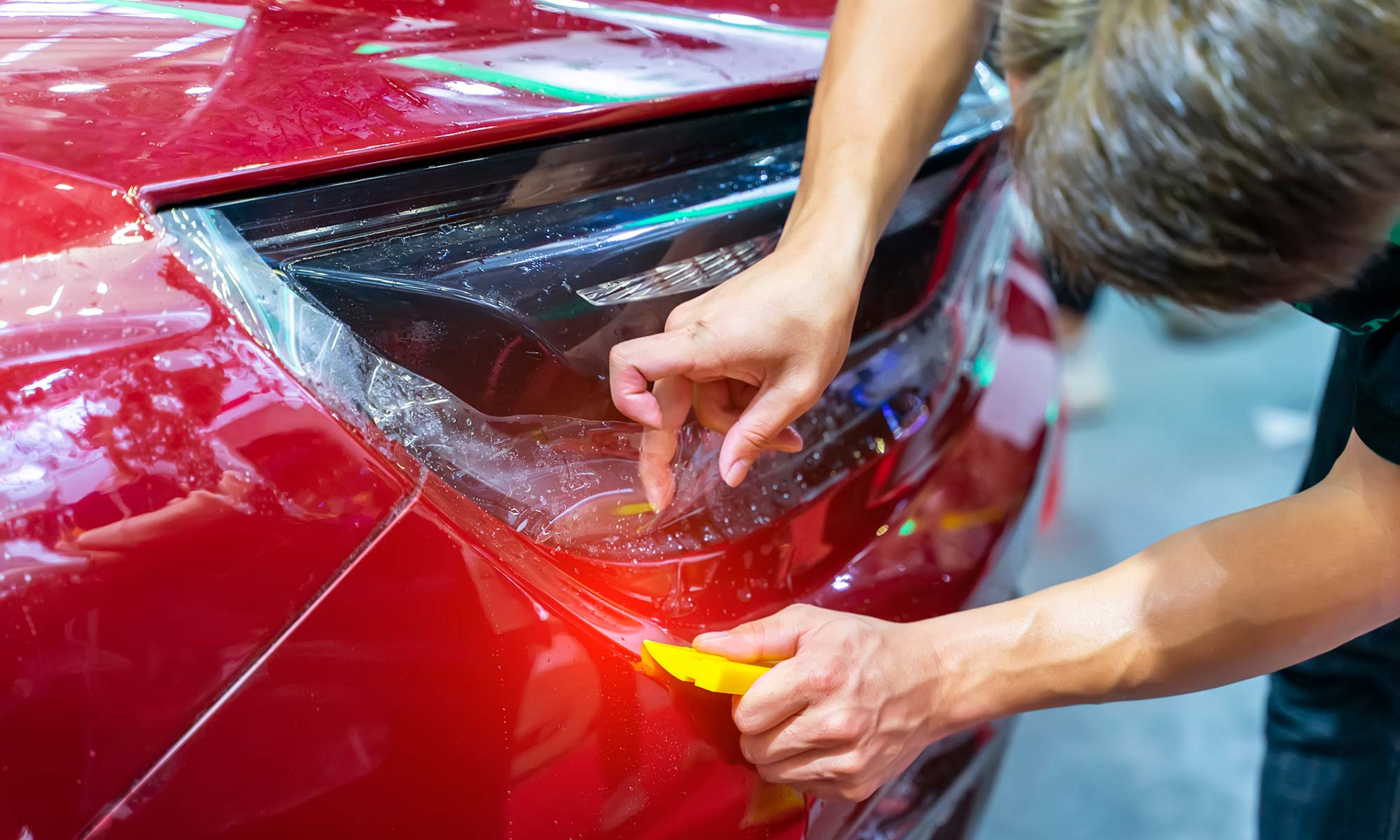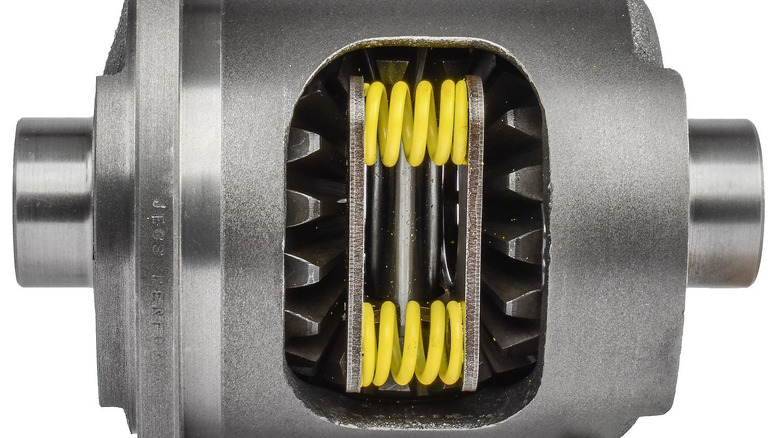Although superficial, a lot of people judge the vehicle by the quality and appeal of the paint job. A good quality paint finish can have a significant effect on the car’s design, but it also has other properties and advantages. Correctly applied car paint will protect the vehicle’s metal from rust, road debris, and other corrosion. Without paint finish, the external parts of the vehicle will deteriorate with significant speed, since they will be left unprotected and vulnerable.
As time goes by, the paint job will fade and grow old, degrading the looks and reducing protection. Some people prefer to revive or repaint the paint finish in their garage, but most of them don’t realize that many mistakes can be made during this process.
Incorrect mixing or spraying of the paint may lead to many imperfections that will affect the appearance or leave vulnerabilities in the protective paint layer. Many problems can appear without knowing the correct way of the paint job application. In this article, we’ll review some of the most common problems that can appear during painting by yourself, and how to prevent them.
Overspray Protection: The First Thing to Deal With
Before applying the new paint finish on your vehicle, windows, trim pieces, and other exterior parts that do not require painting have to be protected. If some paint falls into windows and other parts that don’t require painting, removing it may be problematic.
Special masking papers and covers are available, already designed to provide perfect protection against overspray. Of course, you may use homemade DIY covers to protect windows, but better not to take your chances and make the painting process as smooth and perfect as possible.
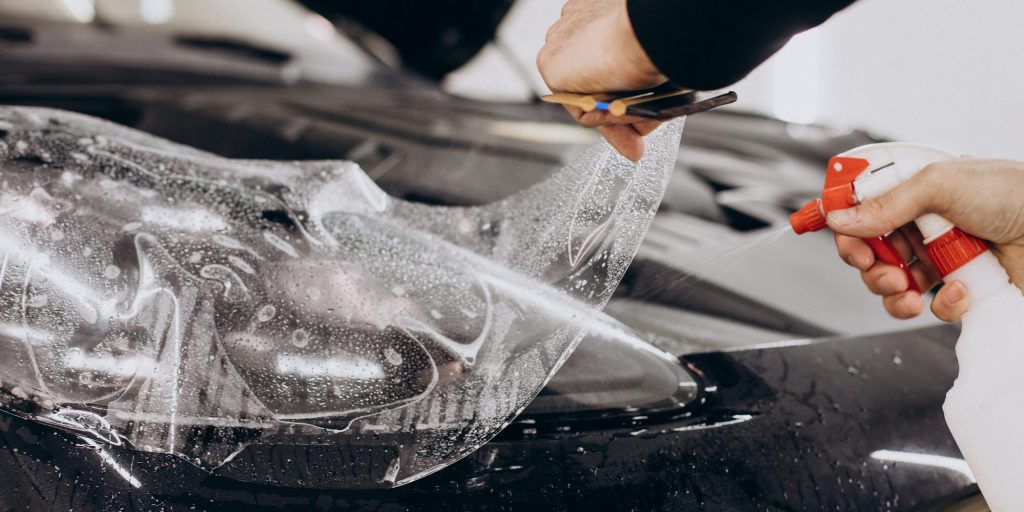
Don’t Trap the Dirt Under the New Paint Job
Any professional auto paint service will prepare the vehicle by efficiently cleaning the surface. If the cleaning is not complete, or some dirt and dust particles are left behind, in the future it will harm the paint finish integrity. Unnatural texture errors, deterioration, and flaking are the main consequences of incorrect cleaning. If you apply paint finish by yourself in the garage or give your car a paint job in the car service, make sure that it is properly cleaned to prevent any problems in the future.
Mix the Paint Correctly to Prevent Paint Runs and Sags
The painting process is not an easy job. It requires supplies of high quality, a specific environment, and knowledge of how the car paint application works. A lot of mistakes can be made painting on your own, in the garage environment. For example, applying too much paint will increase the risk of paint runs and sags appearing on the surface. Reducing or thinning the paint mix can also cause consistency problems.
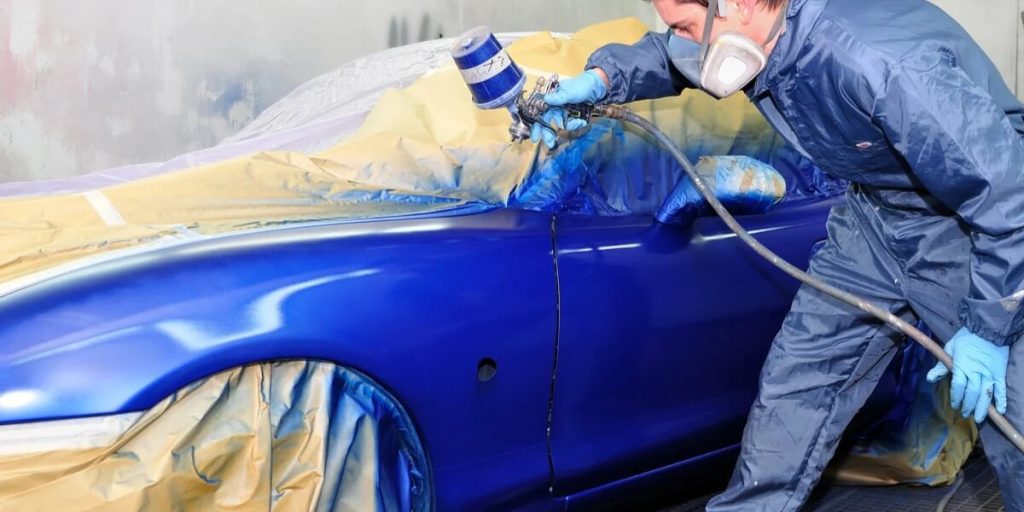
Sags are very common when car owners try to apply paint finish by themselves without understanding the basics. Remember, the perpendicular angle is correct when holding the paint gun. It must be fairly far away from the surface, do not be too close to the area you are painting. Move your hand in even and fast strokes. And never apply paint finish when it is cold around.
If you don’t understand how to handle paint, better leave it to professionals, who will apply the paint finish fast and correctly.
Fisheyes on the Paint Job: The Surface Has to be Clean
Fisheyes are circular defects in the paint job that appear immediately after applying paint or in the process of doing so. The most common cause of this problem is spots of contamination on the surface that you are painting. Contamination may include wax leftovers, silicone or oil stains, and grease spots.
Of course, the best way to avoid fisheyes on the paint job is to clean the vehicle properly beforehand. Wax and grease removers have to be used in order to ensure complete cleaning from any contamination that can hinder paint application.
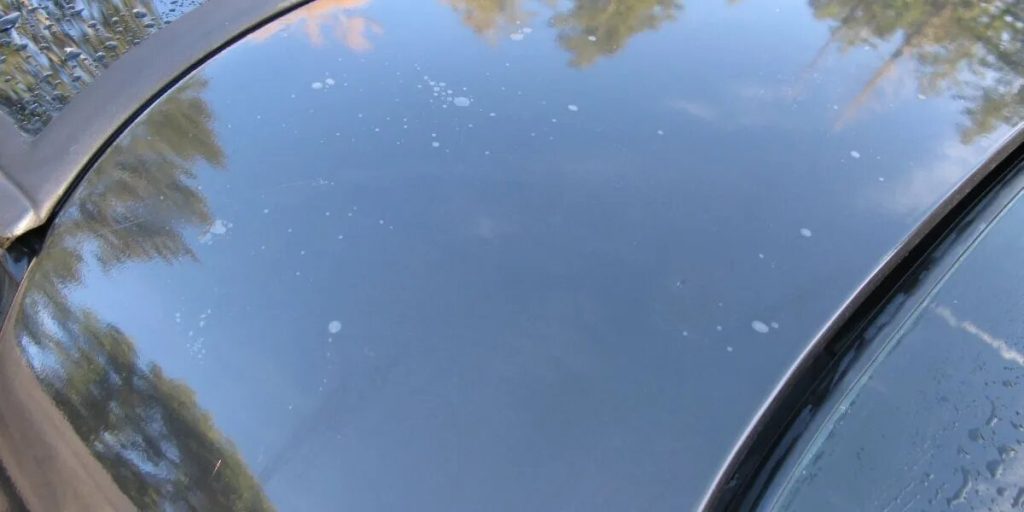
Incompatibility Between the Old and the New Paint Finishes
Old paint layers can get into the reaction with the new layer of paint you apply, which may cause multiple defects. Lifting or wrinkling of the paint may happen when the new layer gets into reaction with the old layer of paint. This is most common when recoating enamels or urethanes paint finishes with bad timing. For example, without letting the old layer cure correctly, or waiting too long and applying a new layer on the dry one.
Bleeding of the paint finish may happen if the solvent of the fresh topcoat dissolves pigments of the old paint layer. This problem can be resolved by spraying a sealer over cured stained topcoat and then reapplying the color.
Hazing or Dulling of the Paint Finish
This problem can appear because of many mistakes or causes. But usually, it happens when the undercoat doesn’t correctly cure or dry.
Crow’s Feet on the Paint Finish
Crow’s feet are cracks on the topcoat that appear on the new paint finish. Many mistakes in the paint applying process can cause crow’s feet. Not enough time to cure and dry between coats or using a blowgun to accelerate drying are the most common causes. Other mistakes include too much hardener or catalyst in the paint layer or too much thickness in the film coat.
Crow’s feet and other cracks caused by mistakes during the paint job cannot be corrected. The cracked layer has to be removed and redone.
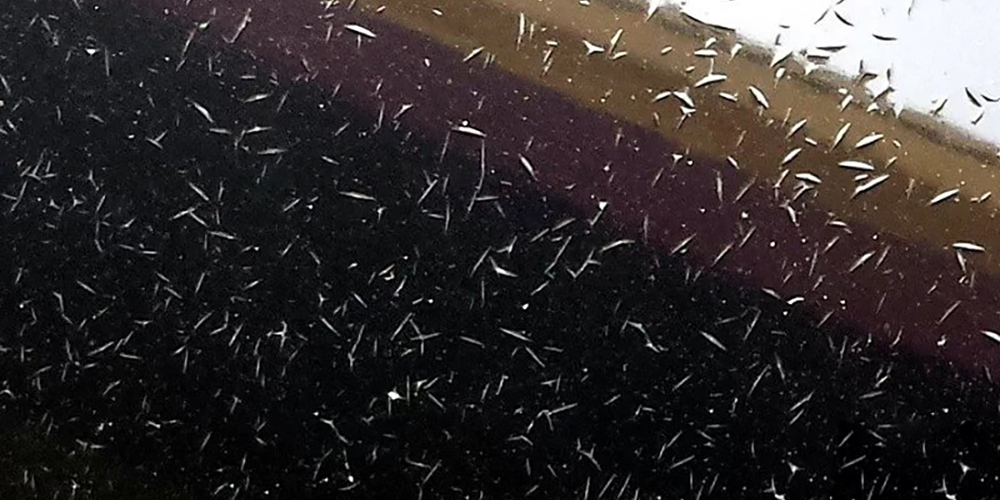
Paint Finish Problems that Can be Corrected with Sandpaper
Air bubbles may appear when some tiny drops of air get trapped under the paint layer, rise to the top, and pop, leaving visible circles behind. Air trappings can be avoided with the correct pressure in the paint gun, and the proper distance above the surface you’re going to paint. However, if the bubbles did appear in the paint job, sandpaper with 1200-grit and polish afterward will resolve the situation!
Another problem that can be corrected by 1200-grit sandpaper is orange peeling. The cause for orange peeling is low pressure in the paint gun or not enough reduction in the paint.
Sand Scratches Due to Paint Job Mistakes
Sand scratches look like marks, lines, or marks on the paint film. Incorrect sanding, or filling the scratches with sanding or primer are the main reasons for sand scratches. This can be fixed by letting it cure, and then working on the problematic area with re-sanding and refinishing.
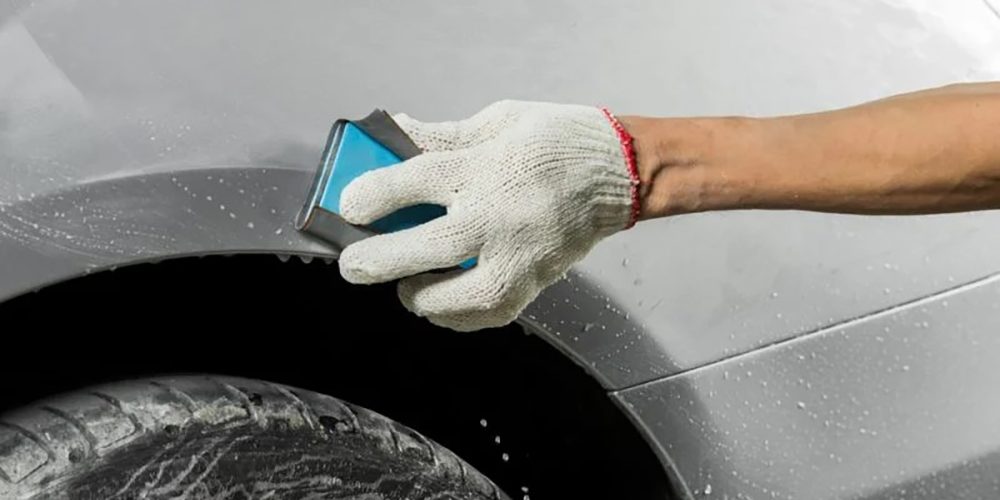
Cracking and Peeling Require Refinishing
Cracks may appear when the paint finish is applied over the cracked surface. Too much thickness in the undercoat or topcoat may be another reason for cracks appearing in the paint job.
The paint finish may peel off if the paint layer doesn’t cure properly to the surface of the vehicle. It may be avoided by properly preparing the surface for the paint application.
Both cracks and peeling off may only be corrected by refinishing the problematic areas.
Other Common Problems Caused by Incorrect Paint Application
The softness of the paint finish is possible if the paint layer is too thick and didn’t have enough time to cure and dry. Leaving it in this state and starting to use the vehicle may lead to the paint finish being vulnerable to deterioration. It will be soft and easily damaged.
The grit problem on the paint finish looks like particles of paint glued to the surface of the recently painted surface. It may happen if the paint isn’t stirred or mixed properly, or if you use old or expired paint. It can be corrected by allowing the paint to cure properly, and then respraying it, after using the sandpaper on the problematic area.
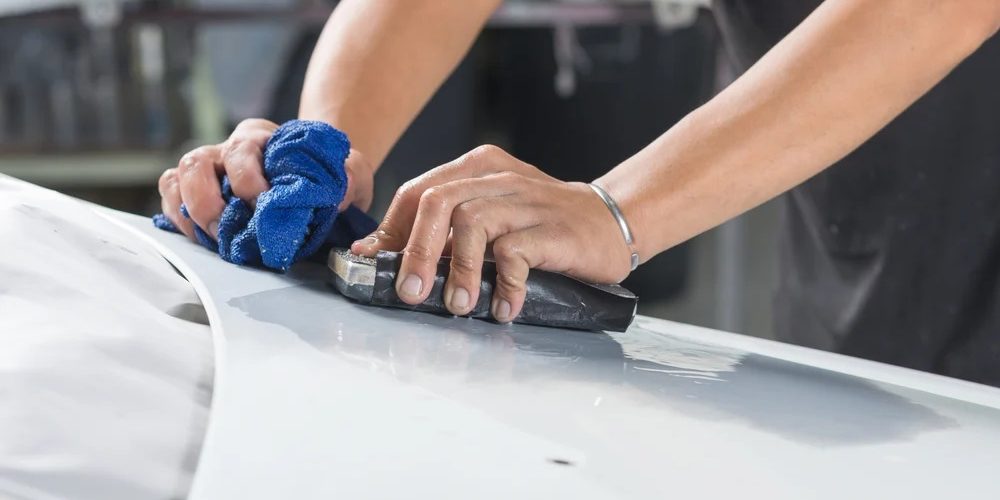
Swellings of some particular areas also called pimpling, may happen if the paint application was done on a wet surface. Moisture trapped under the layer of paint finish will affect and damage it. It cannot be corrected without refinishing the area, but it can be prevented by making sure the vehicle is properly cleaned and dried out.
What Else to Know Before Applying Paint Finish on the Car
Different conditions and paint types require different knowledge of the process. If you are not sure that you will make everything right, don’t waste paint, time, and money. Give your vehicle a professional paint job. Professionals will make sure that the paint finish will protect your vehicle for years, and that it will be protected itself against conditions, particles, and weather effects. A professional paint job in a car service is always a good decision to ensure the best style and performance of the new paint finish.
Don’t save on the paint finish and it will serve you for years! Happy road to you!
